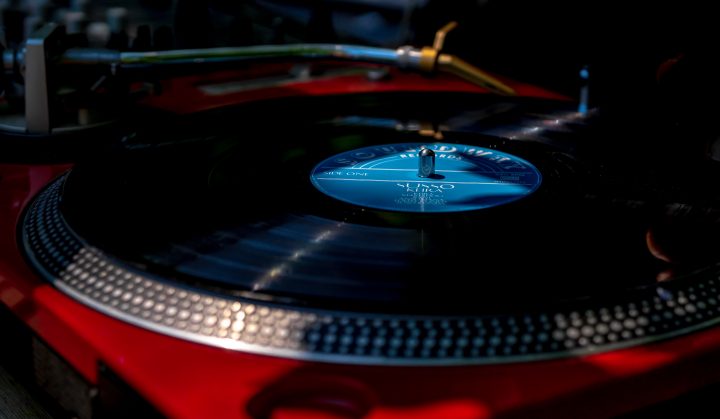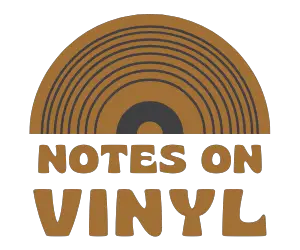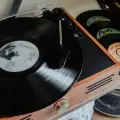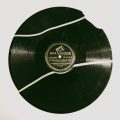Want to learn some of the best things about buying an automatic turntable? Are you a beginner looking for an easy ride out there on the open road of audiophilia?
Then step right up, as we explore some of the key features of an automatic turntable alongside what makes them so desirable for beginners and veterans alike.
Table of Contents
- 1. The Clue’s in the Name
- 2. Less Risk
- 3. Convenience
- 4. No Needle, No Problems
- 5. Affordable
- Final Tones
- FAQs Automatic Turntable

1. The Clue’s in the Name
Indeed, for automatic and manual turntables, all you need to do is check out the name to get an idea of what to expect.
A manual turntable is a turntable that functions manually and relies on the expertise of each user. This functionality primarily refers to the action of placing the needle onto the record and taking it off. Both of which you will have to do by hand with a manual turntable.
A semi-automatic turntable strikes a healthy middle ground between the two. With one of the above functions being catered for instead of the other. For semi-automatic turntables, this means that either the needle will take itself off automatically once a record is done, or that the needle can be automatically cued onto the record at the press of a button.
Thus, a fully automatic turntable is one that can automatically perform the two aforementioned actions. An automatic belt drive turntable will, then, take the needle off the record when it deems it to have finished playing. It can also offer the option to place the needle on the record when you want to begin listening.
Though many often opt for semi-automatic turntables, an automatic turntable will typically include a built-in phono preamp. This makes it perfect for a beginner who does not want to collect all the various parts of a stereo system.
For those beginners, it can be helpful to know what a preamp for turntable actually does for the sound quality of an automatic record player. For those more experienced, why not find the best phono preamp under $500?
2. Less Risk
For those less experienced with the use of a record player or turntable, fully automatic operation can prove quite useful. It enables you to understand how it works without the risk of scratching up your discs.
When manually operating a turntable, the power is truly in the user’s hands. Sure, this can be a good thing in and of itself. But when the user does not necessarily know anything about using a turntable, it could spell disaster for the records in question.
We are all too acquainted with that dastardly sound – needle wrenched across wax. Truly hellish to the ears of anyone, especially an audiophile like yourself.
This is one of the inherent risks of using a manual turntable when you do not have much experience with using such antiquated technology. Very often, with modern technology, the work is done for you. Taking the power out of your hands for the sake of convenience. Audiophilia is something that many millennial users will, thus, need to get used to.
An automatic turntable, on the other hand, seeks to take the power out of the hands of the user for the better. This is why many audiophiles will likely recommend an automatic or semi-automatic turntable for beginners.
This is also why many legendary beginner turntables – like the Audio-Technica At-LP60, for instance – are also fully automatic. They provide a full and complete turntable experience without all the risk that a manual turntable can bring with it.
3. Convenience
One of the main reasons anyone other than beginners would want to purchase an automatic turntable would be convenience. Sure, there is still a great sound response. But many would argue that this does not stand up when compared to its manual counterparts. No matter how accurate the playback is.
Thus, those who are looking to pledge allegiance to the latter of manual vs automatic turntables will likely be doing so in the name of convenience. After all, the work is being done for you, right?
There is no need to put your back out to start the record. You can simply do so at the push of a button. Likewise, you need not bother getting up once the record has finished. The needle will relieve itself of its duties automatically.
For many millennial listeners or record collectors who are new to the game, this matter of convenience will be of the utmost importance. In this day and age, convenience is, indeed, the name of the game. Digital streaming and the like mean that any song can be in the palm of our hands instantly.
And, while there are still debates between CD vs Vinyl, the former is objectively the most convenient. An automatic turntable seems like a way to combat this ideologically, appealing to the millennial attention span.
All too often, I have found myself cozied up on the sofa listening to a record and have had to rouse myself from whatever reverie I was in so that the record is not damaged by the repeated revolutions of the needle going round and round mindlessly.
4. No Needle, No Problems
Indeed, this issue is worthy of its own section altogether. The needle is only doing its job. But sometimes, it can do more harm than good.
In fact, needles have a massive part to play in the lifespan of a record. How long vinyl records last is sometimes wholly dependent on their relationship with the needle, its quality, and the care it receives along the way.
An MM cartridge like the Ortofon OM5E, for example, is well-suited to the task of not only bringing your records to life but also treating them with respect. The kind of cartridge that you mind find on, say, a Crosley record player, though, is to be avoided at all costs. Such sacrilege will only cost you and your record collection.
It should be no secret now that the stylus the Crosley comes built with from the factory is not very good. I would never begrudge someone for using a Crosley if, for example, their financial situation required it. However, I would recommend that you change the cartridge as soon as possible.
Most Crosley models allow this. But there are some incredibly affordable alternative turntables by Audio-Technica (the AT-VM95C, for instance) that will not tear your record to shreds.
5. Affordable
Of course, there is a whole abundance of turntables in just about every price range you can imagine. Such is the nature of the oversaturation of the market today.
For some reason or another, there is a tendency for higher-end turntables to be manual. This leaves a large number of automatic turntables to choose from in the low to mid-price range, anywhere from $50 to $500.
One of my hypotheses for this is that manufacturers assume that those who will be using automatic turntables will be beginners. This, in turn, makes the assumption that beginners will not want to invest as much money in their vessels.
Just look at some of the best turntables under $2000. You will see that almost all of them are manual belt-driven turntables. The only one that is not is the Technics SL-1200MK7. And that is only because it is specifically designed to cater to DJs who favor direct drive turntables for their immediate start-stop action.
So, you can be pretty sure of getting a reasonably affordable deal on an automatic turntable. Because many manufacturers are designing them and releasing them to be bought by beginners. Here is my picks for the best DJ turntable for beginners.
Final Tones
So, there you have it! Hopefully, we have been of some use in helping you decide whether you should buy an automatic turntable. And to feel out the dim void that is the over-saturated turntable market. Perhaps you are feeling better equipped to make a decision, or have made your mind up entirely never to spin another record!
FAQs Automatic Turntable
Are automatic turntables good?
This remains to be seen by each individual person, though they are inherently good at offering a few things. Being automatic, these turntables offer a more convenient and comfortable user experience. They do most of the work for the user in question. At the push of a button, the tonearm will croak into action. Once the record has ended, the turntable will then take note and lift the tonearm from the record, returning it to its original position at the edge, ready and willing to do your bidding.
Is a manual or automatic turntable better?
Neither is inherently better than the other. Rather, both offer a different user experience. Automatic turntables offer a convenience that manual turntables do not. They take the power from the hands of the user and do most of the work themselves. This essentially shows itself in the automation of two of its processes. Placing the tonearm onto the record and taking it off when the record is done. Manual turntables, on the other hand, offer an inverse experience that prioritizes the power of the user, placing them in charge and giving them the reins.
Do automatic turntables damage records?
Common knowledge says that it is the other way around. The reason many beginners in the world of record collecting and turntablism opt to use an automatic turntable is so that the power is taken out of their hands. When less experienced with operating a turntable and placing a needle onto a record, there is the risk that this delicate operation might be messed up, leading to scratches on the disc.
What does a fully automatic turntable mean?
A fully automatic turntable, then, is one that automates both the placing of the needle onto the record and the removal of the said needle when the music is over.









